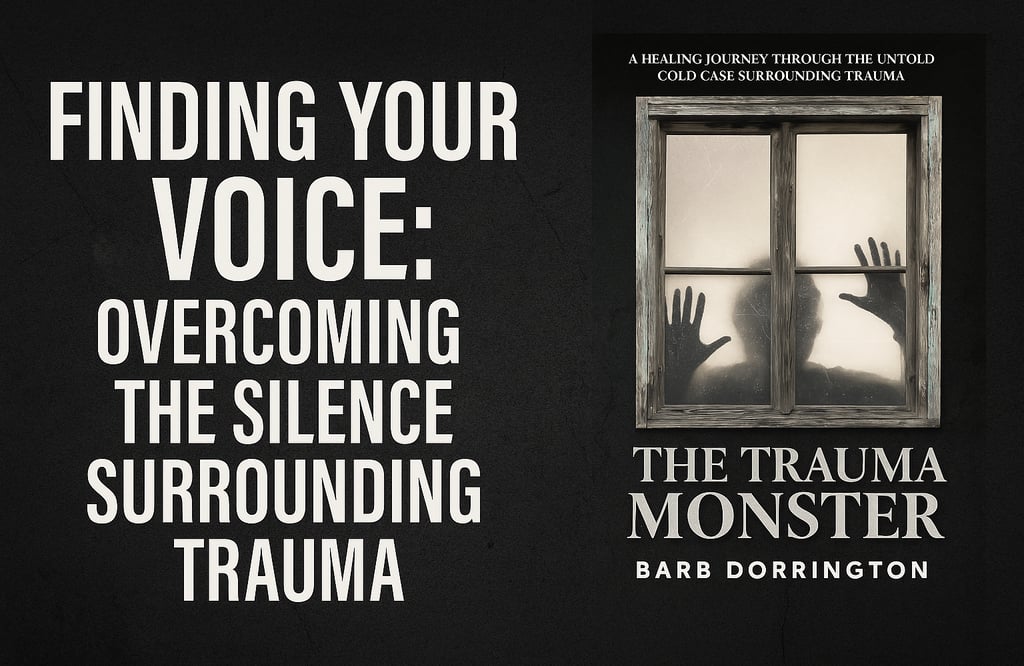Finding Your Voice: Overcoming the Silence Surrounding Trauma
Barb Dorrington
6/16/20251 min read


Trauma often thrives in silence, hidden away by fear, shame, or uncertainty about how others might respond. In her insightful book, The Trauma Monster, Barb Dorrington stresses the vital importance of breaking this silence, encouraging survivors to reclaim their voices and empower themselves through openness and authenticity.
Silence can amplify feelings of isolation, making trauma survivors believe they're alone in their pain. Yet, when you find the courage to speak about your experiences, it becomes a transformative act—not only for yourself but potentially inspiring others facing similar battles.
Here's how you can begin to overcome the silence surrounding trauma:
1. Start With Safe Spaces: Initially, share your experiences in a safe and supportive environment, whether that's with a trusted friend, family member, therapist, or within a supportive group.
2. Express Through Creativity: If spoken words feel overwhelming at first, consider expressing your voice through writing, art, or other creative outlets. These methods can gently guide you toward finding your verbal voice.
3. Educate Yourself and Others: Learning about trauma can empower you and help you explain your experiences clearly and confidently to others. Knowledge reduces stigma and fosters greater empathy.
4. Normalize Conversations Around Trauma: Actively participate in conversations, workshops, or events that promote openness about mental health and trauma recovery, helping break down societal barriers.
5. Celebrate Your Courage: Recognize the bravery involved in speaking your truth. Each step toward openness is an act of strength and resilience that deserves acknowledgment and self-compassion.
Barb Dorrington highlights that breaking the silence is crucial not only for personal healing but also for collective awareness and understanding. When survivors speak out, it diminishes stigma, fosters empathy, and cultivates communities of support and understanding.
Finding your voice is not merely about speaking; it's about reclaiming your power, identity, and connection. By overcoming silence, you can transform trauma from a source of isolation into a source of strength, healing, and solidarity.


